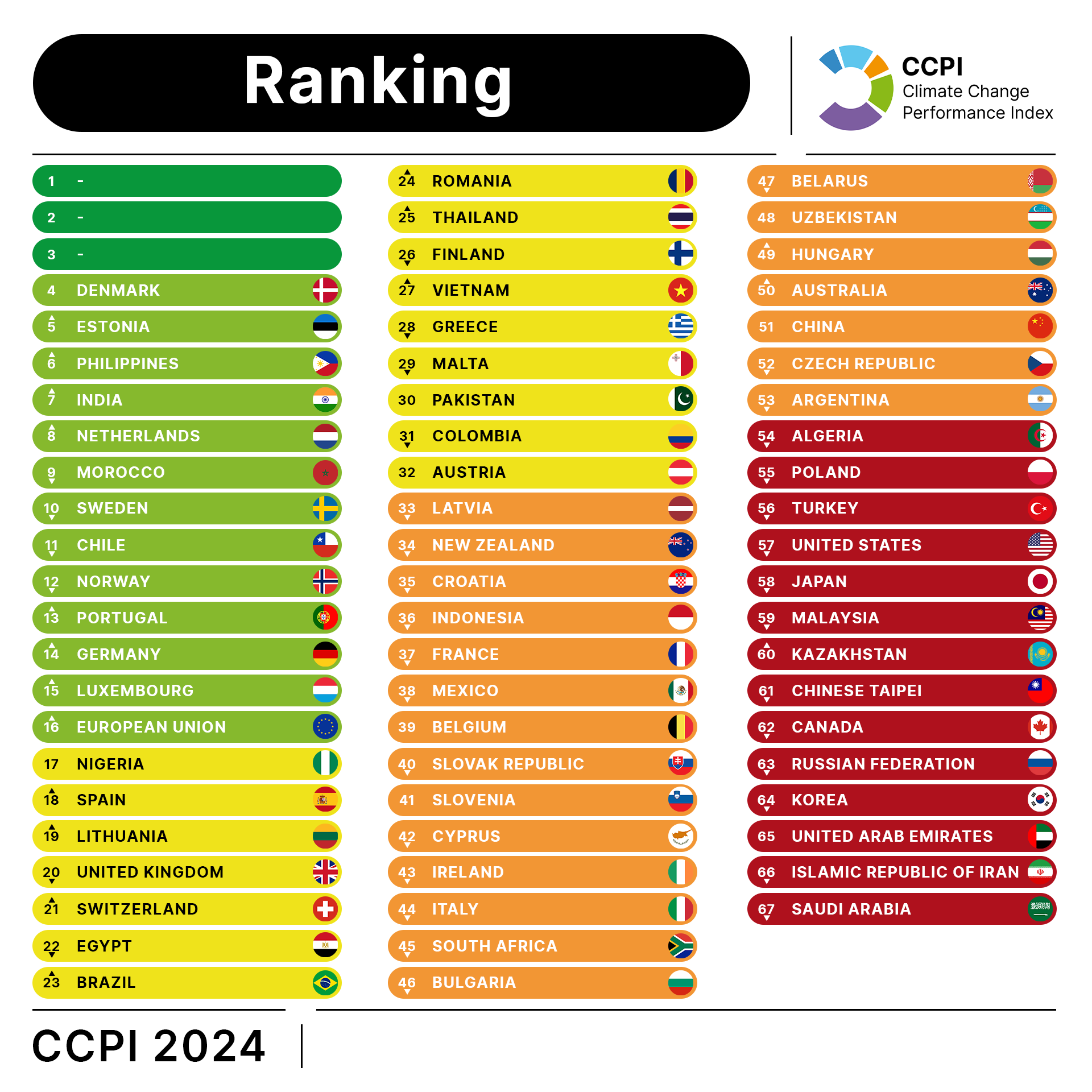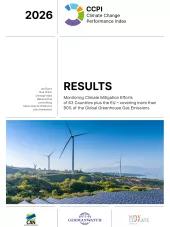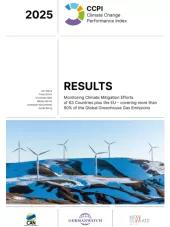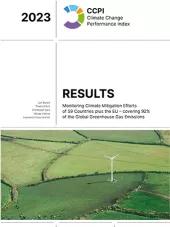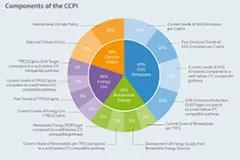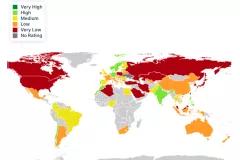Despite boom in renewables: world no closer to Paris climate goals until fossil fuels decline drastically
The Climate Change Performance Index monitors climate mitigation progress of 63 countries and the European Union, together responsible for more than 90% of global emissions.
In recent years, governments around the world have increasingly placed climate action on their agenda, and renewable energy is booming in many countries. However, this still is not enough. The race against time continues: global emissions must nearly halve by 2030, and reducing the use of fossil fuels should account for most of that.
As in previous years, not a single assessed country has acted in line with the 1.5-degree limit. Nevertheless, there are big differences in ambition: Denmark is at the top of the index again (4th), followed by the climbers Estonia and Philippines (5th and 6th). Unfortunately, not everyone follows this good example: China, the largest emitter, remains in 51st place, while the US has even dropped five places since last year (now 57th). The host of COP28, the United Arab Emirates (UAE), Iran, and Saudi Arabia form the bottom trio (ranked 65th to 67th).
China stagnates – US still at the bottom
The biggest emitter China stagnates at the 51st place among the ‘low’ performing countries. Although China has a strong growing renewable energy sector and improves energy efficiency measures, it is among the nine countries responsible for 90% of global coal production. It also plans to increase its gas production by 2030.
USA (57th), the second biggest emitter, is still not on track. Burck explains ‘Our experts from the US welcome the climate relevant Inflation Reduction Act that led to significant investments in renewable energy. But more concrete implementation policies in all sectors are needed. However, the disastrous climate policy record of the first Trump administration raises fears that a potential new Trump administration would make the picture even worse.´
With India, Germany (14th), and the EU (16th), only three G20 members are among the ‘high’ overall performers in the CCPI 2024. Fifteen G20 countries receive an overall ‘low’ or ‘very low’. Canada (62nd), Russia (63rd), South Korea (64th), and Saudi Arabia (67th) remain the G20’s worst performing countries. Saudi Arabia’s per capita greenhouse gas emissions are rising steadily. Its share of renewable energy in total primary energy supply is close to zero, and the countries targets are too low.
UK falls in rank after climate policy rollback
The United Kingdom has slipped down the rank from 11 to 20. The UK government under Prime Minister Sunak has rolled back on several pieces of climate legislation. This is exactly the opposite of what the world needs. Instead of phasing out fossil fuels, the government is increasing domestic fossil fuel extraction by approving a new coal mine and granting hundreds of new oil and gas licences in the North Sea. The UK has long been one of the top-ranked countries in the index, but its weakened climate policy has led to a significant drop.
Poland (54th), another European country, performs overall ‘very low’ and is therefore the only EU-country with this rating. If a new Polish government will increase its climate policy ambition, the country could potentially have a better rating next year.
In 2023, the EU adopted the Fit For 55 package, with a series of measures aimed at improving the EU’s climate and energy legislation. It aims to achieve a 55% net emissions reduction by 2030 and climate neutrality by 2050. ‘While the EU is likely to meet its 2030 emission reduction target, the target level of reduction is not ambitious enough to keep the EU in line with the Paris Agreement,’ says Uhlich.
The COP host UAE (65th), is one of the lowest performing countries. The country’s performance disappoints in three out of four categories, particularly its high per capita emissions (25.9 tonnes) and the low share of renewable energy (less than 1%). Other oil-producing countries are at the bottom too, such as Russia (63rd), Iran (66th), Saudi Arabia (67th), and Canada (62nd).

